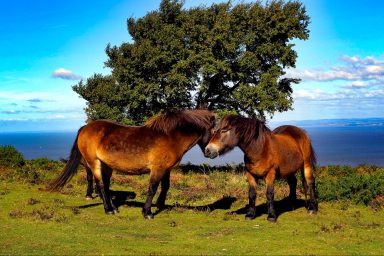PICKS are stories from many sources, selected by our editors or recommended by our readers because they are important, surprising, troubling, enlightening, inspiring, or amusing. They appear on our site and in our daily newsletter. Please send suggested articles, videos, podcasts, etc. to picks@whowhatwhy.org.
Environmental Threats Are Biggest Challenge to Human Rights: UN (Maria)
The author writes, “The UN rights chief said the ‘triple planetary crises’ of climate change, pollution, and nature loss represented the biggest threat to human rights globally at the opening on Monday of a month-long session set to prioritise environmental issues. ‘As these environmental threats intensify, they will constitute the single greatest challenge to human rights of our era,’ said Michelle Bachelet, referring to recent ‘extreme and murderous’ climate-related events such as floods and wildfires. ‘We must set the bar higher — our common future depends on it,’ she added.”
Florida Anti-Riot Law Struck Down as Unconstitutional to Protesters (Reader Steve)
From Courthouse News: “A federal judge in Florida has barred the state from enforcing a law purporting to criminalize rioting that he wrote instead ‘could effectively criminalize the protected speech of hundreds, if not thousands of law-abiding Floridians.’ U.S. District Judge Mark Walker, an Obama nominee serving the Northern District of Florida, penned a historically minded ruling. His opinion opened with a retelling of the 1956 Tallahassee Bus Boycott, when two Black women’s decision not to move from the bus’s whites-only section resulted in their arrest for ‘inciting a riot.’”
‘Why Am I Still Being Punished?’: How a 1996 Law Makes It Harder for Former Drug Felons to Get Food (Inez)
The author writes, “In 1996, a bill titled the Personal Responsibility and Work Opportunity Reconciliation Act, known simply as ‘welfare reform,’ was signed into law by President Bill Clinton. It promised to tighten restrictions on welfare programs, making assistance leaner and more difficult to access. The bill included a little-known provision known as Section 115 that imposed a lifetime ban on federal food and cash assistance for people with drug felony convictions. It was debated for only two minutes, but over the next several decades, the provision would have a devastating impact on formerly incarcerated people. In the five years after the bill passed, Section 115 resulted in more than 90,000 formerly incarcerated people being purged from welfare rolls.”
Hawaii Is Not Our Playground (Dana)
From Afar: “For years, Hawai‘i has been packaged as a picturesque paradise. A place where mainland travelers could forget the worries of home. The problem? Hawai‘i’s land, history, and people are often ignored or trampled. Chris Colin reports on the locals who are pushing back.”
The Race to Rescue Florida’s Diseased Corals (Russ)
From The Washington Post: “Since 2014, a mysterious illness known as stony coral tissue loss disease has plagued Florida’s reef tract, killing off nearly half the state’s hard corals, whose rigid limestone skeletons provide the architectural backbone of the largest bank reef in the continental United States. By 2018, it became clear that without drastic intervention, these corals would face imminent localized extinction. … To save them, scientists devised a plan to remove the most vulnerable species from their natural habitat and create a land-based gene bank that would serve as a modern day ark for the animals. They knew that to succeed, time was of the essence and collaboration was key. What followed was an unprecedented effort, in which dozens of federal and state organizations, universities, zoos and aquariums joined forces to rescue thousands of Florida’s endangered corals.”
Brain Refreshing: Why the Dreaming Phase Matters (Mili)
The author writes, “Researchers have found that blood flow in the brain capillaries, which is important for oxygen/nutrient delivery and waste removal, was increased during rapid eye movement sleep in mice. Adenosine A2a receptors might be at least partially responsible for this increased blood flow. These findings bring new hope for understanding the function of sleep and developing treatments for neurodegenerative diseases that involve the buildup of waste products in the brain, such as Alzheimer’s disease.”
In Argentina, Giant Rodents Vie With the Rich for Top Real Estate (Dan)
The author writes, “Families of a giant rodent native to South America have been invading a luxury gated community in Argentina, highlighting the country’s controversial environmental and social policies. Nordelta is a 1,600 hectare (3,950 acre) luxury private urban complex built on the outskirts of Buenos Aires, on a wetland from the Parana river that is the capybara’s natural habitat. Many Nordelta residents have complained about capybaras ruining manicured lawns, biting pets and causing traffic accidents.”



